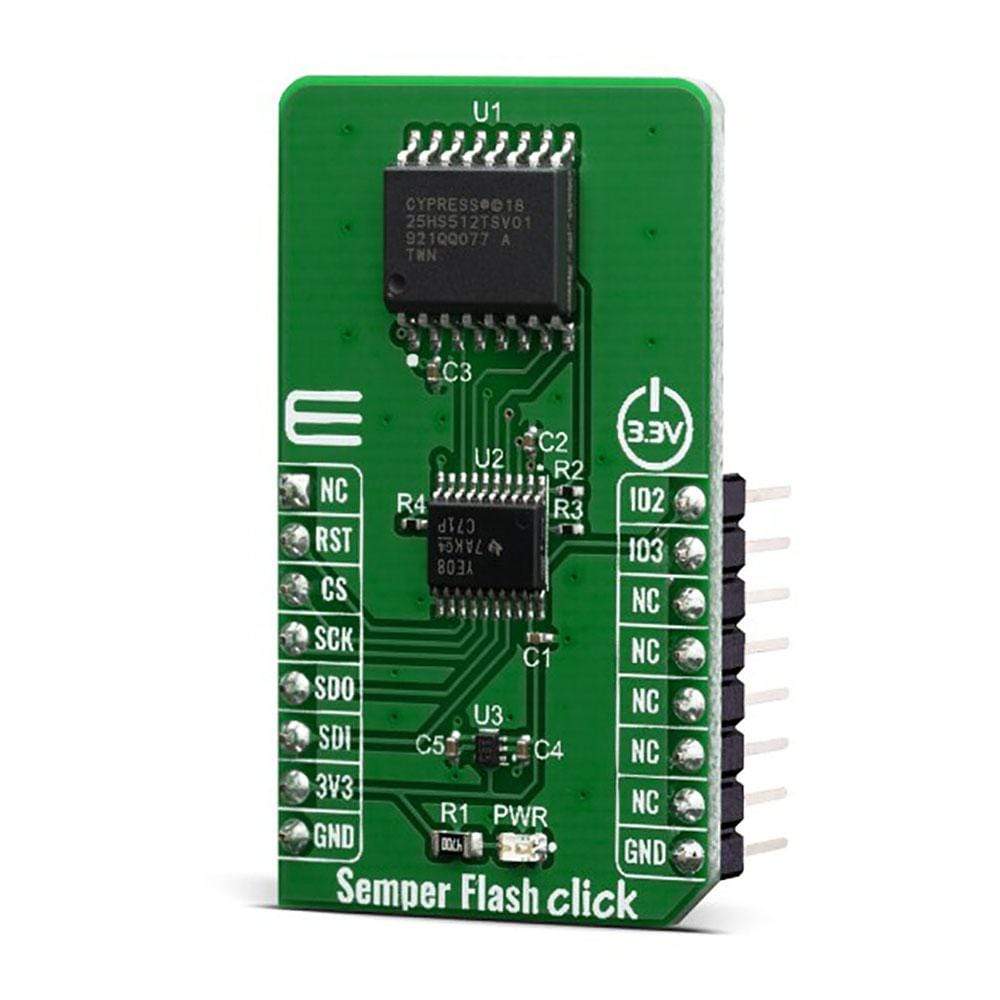
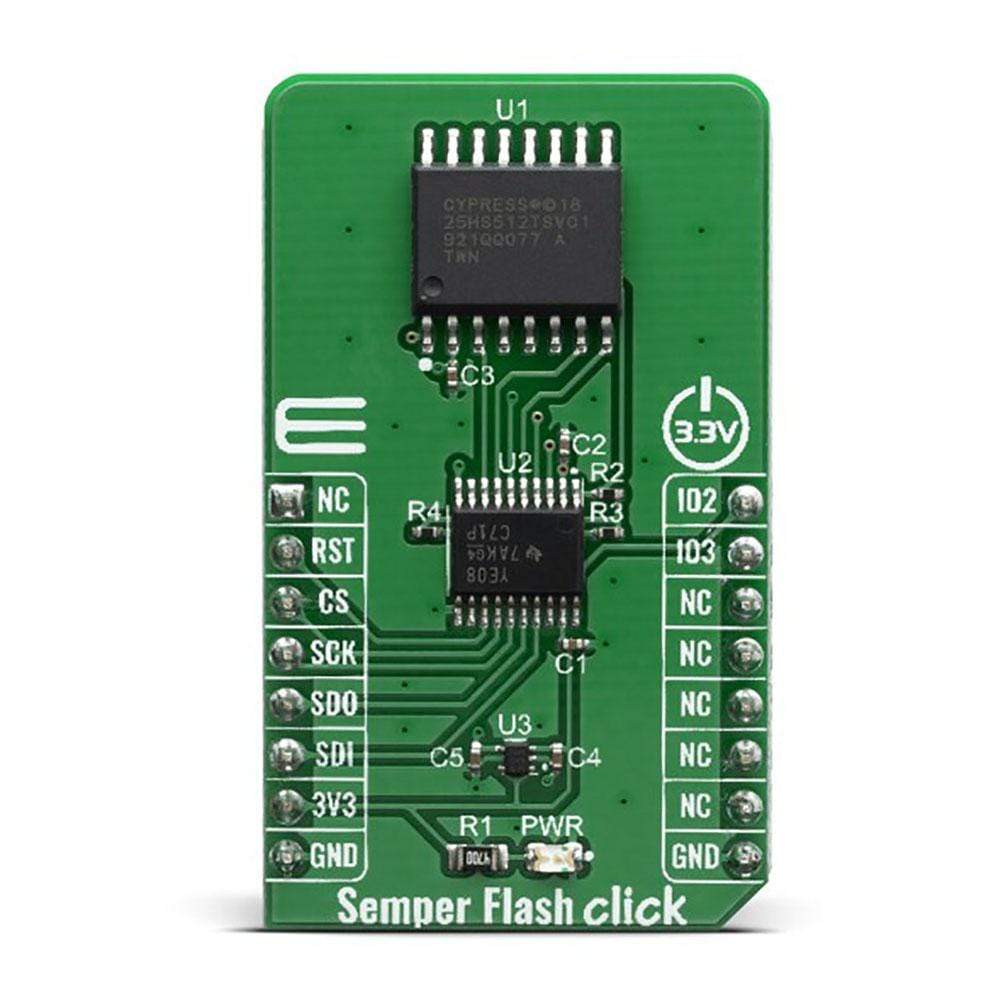
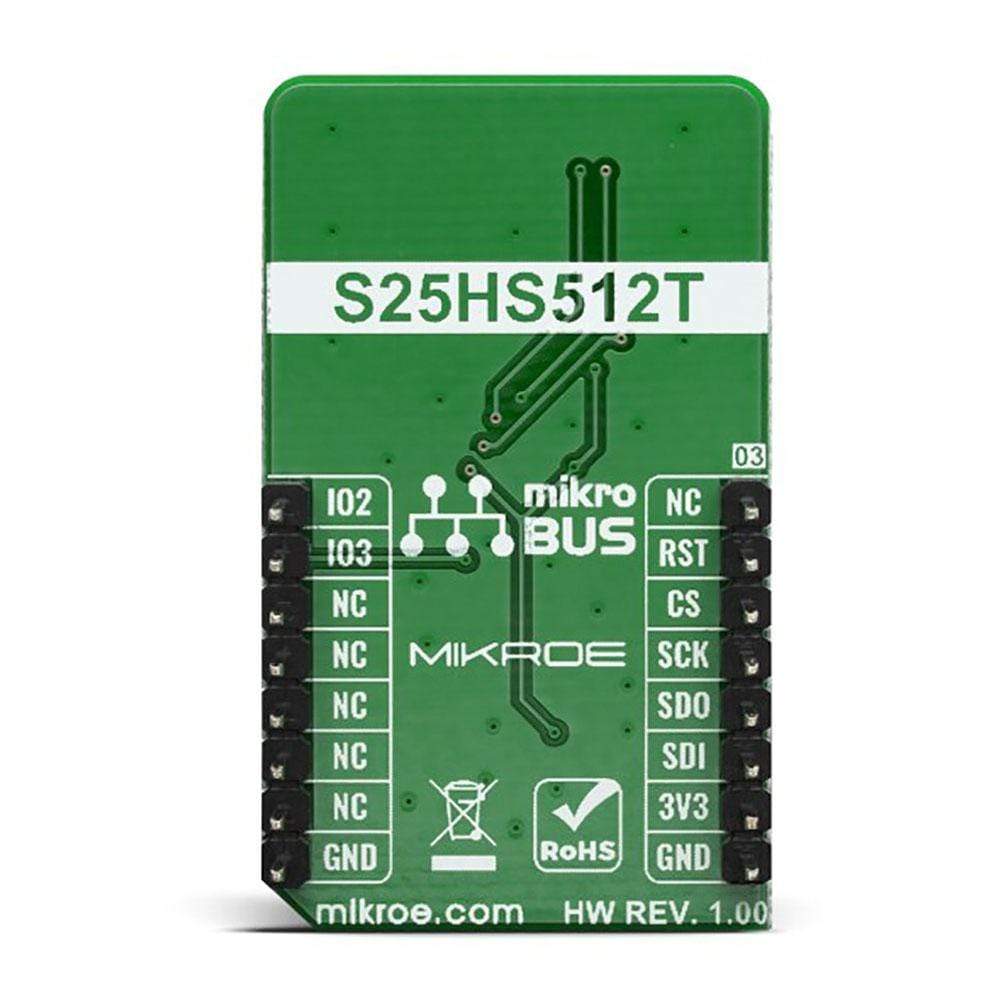
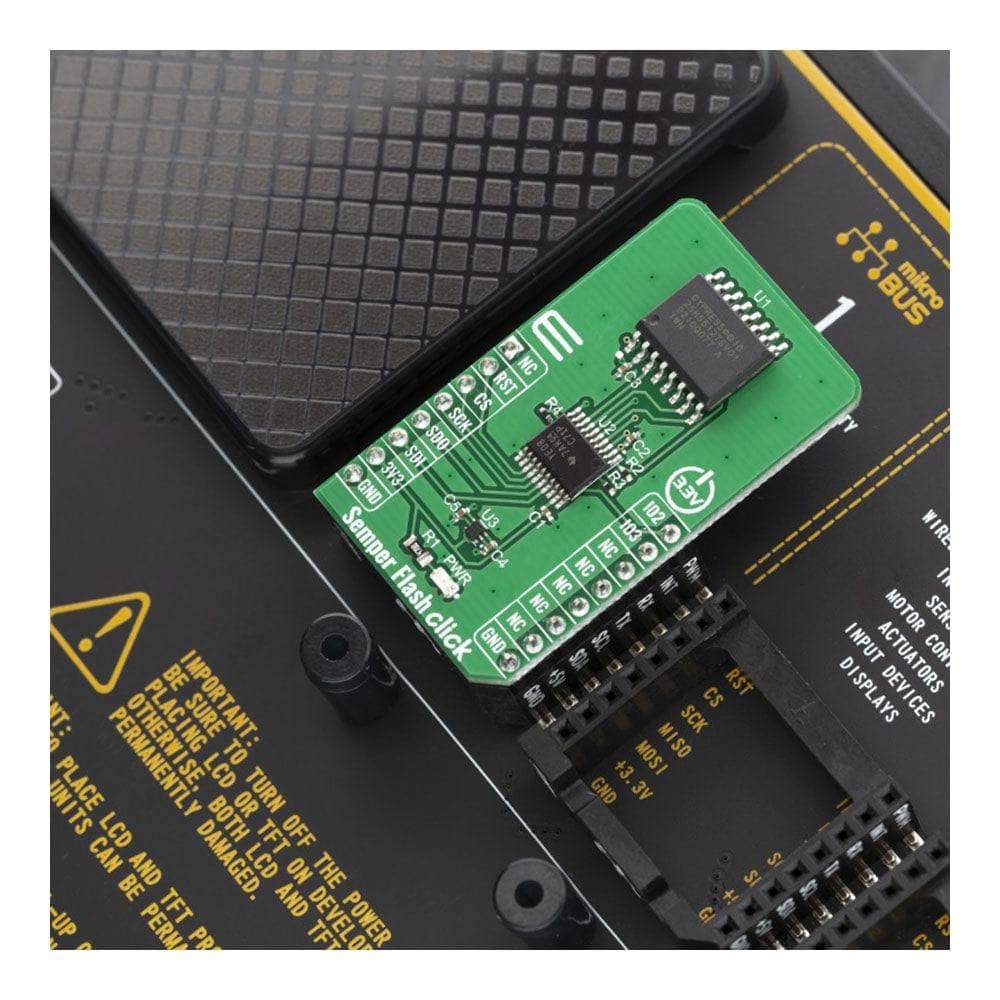
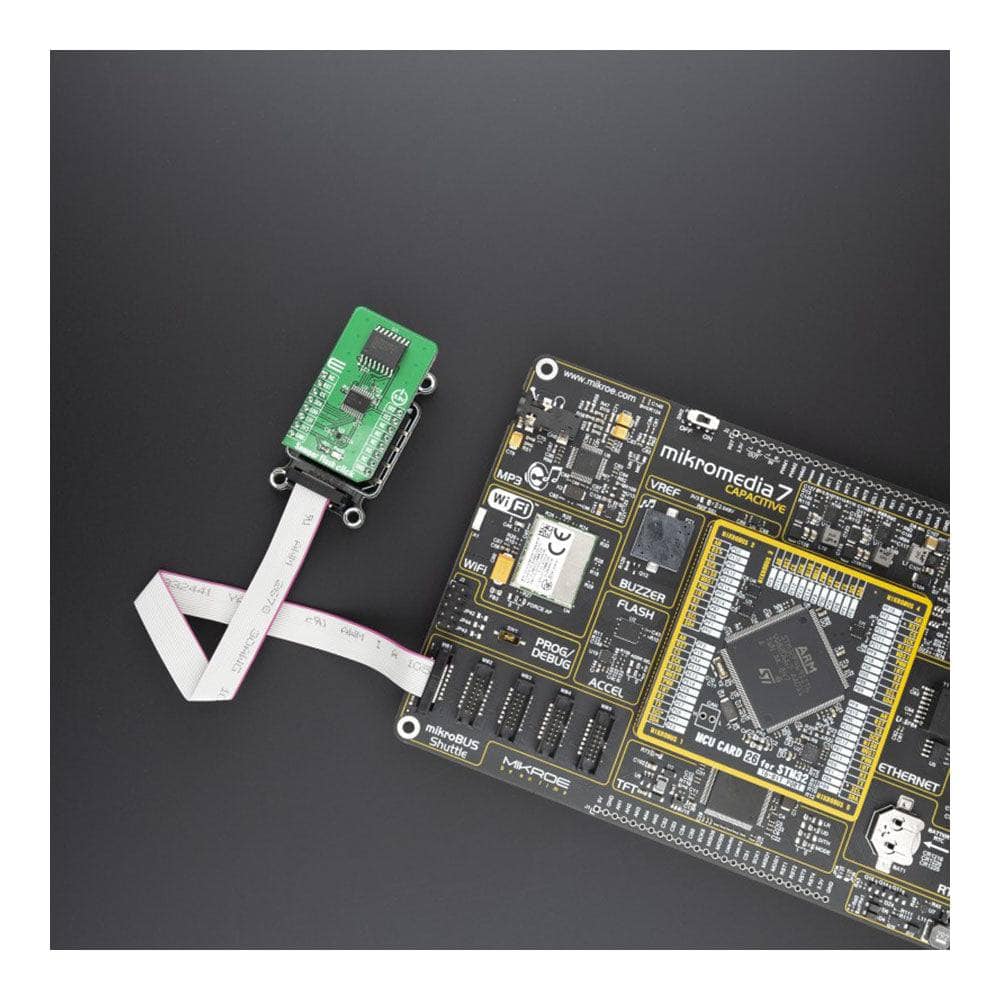
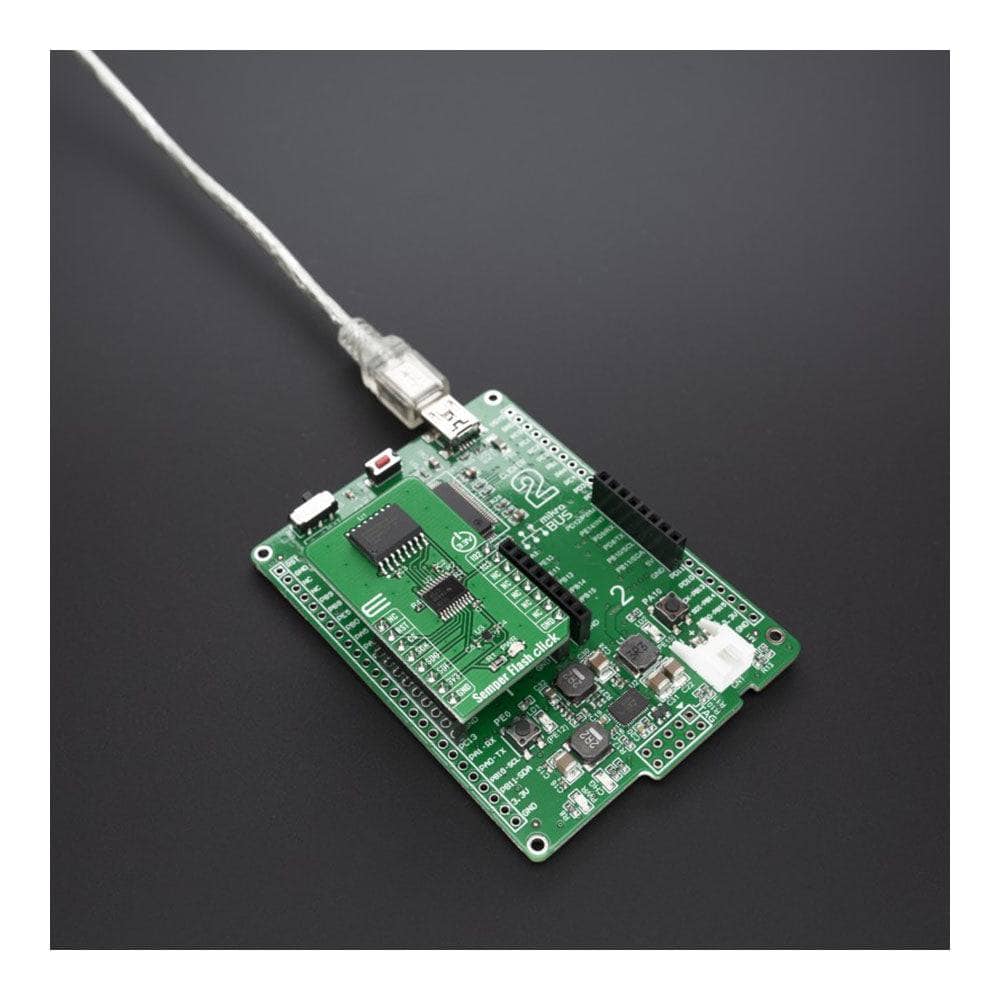
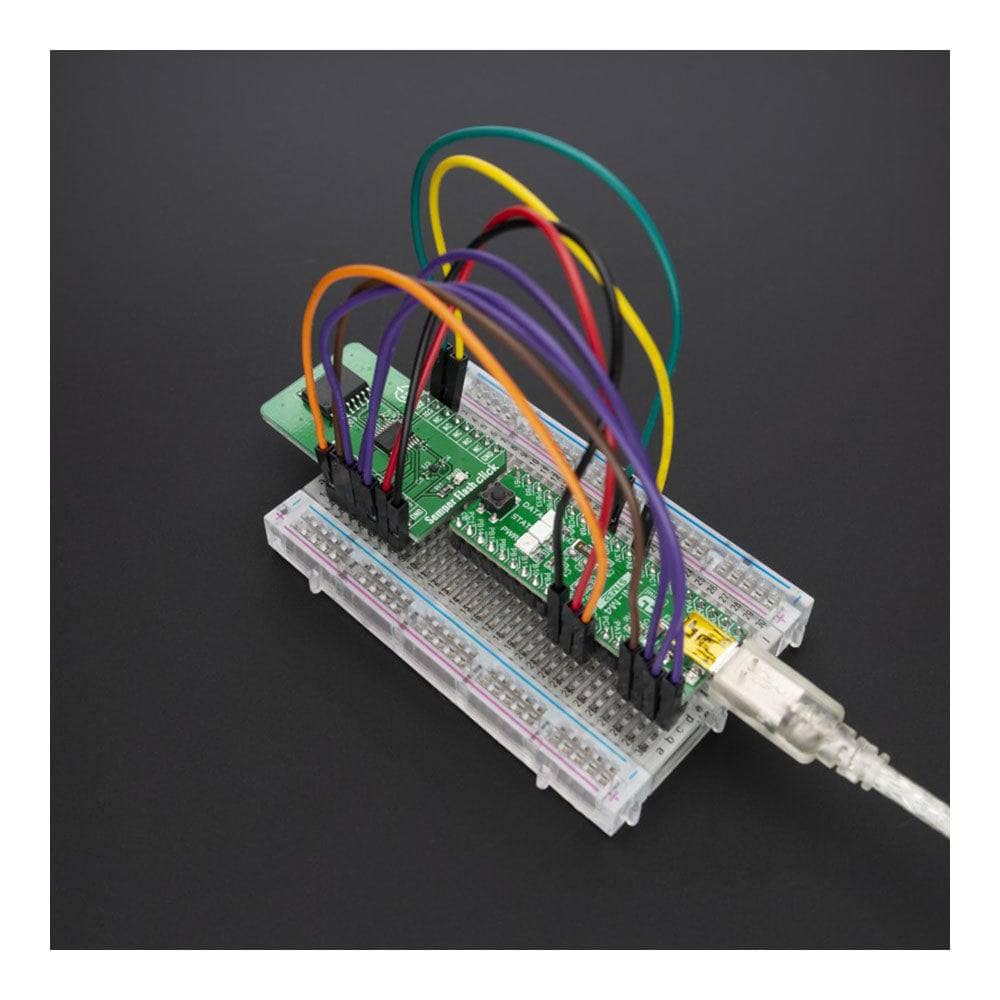
Key Features
Overview
The Semper Flash Click Board™ features the S25HS512T, a perfect solution for the mass storage option in various embedded applications. With fast performance being one of its key features, the Semper Flash Click Board™ can also be used for the code shadowing, execute-in-place (XIP), data logging and data storage. The Cypress Semper Flash with Quad SPI family of products is high-speed CMOS, MirrorBit NOR flash devices.
Semper Flash is designed for Functional Safety with development according to ISO 26262 standard to achieve ASIL-B compliance and ASIL-D readiness. Built-in Error Correcting Code (ECC) corrects Single-bit Error and detects Double-bit Error (SECDED) on memory array data. The 512 Mbit SPI Flash memory module is one of the fastest and most reliable Flash modules on the market.
Downloads
Das Semper Flash Click Board™ verfügt über den S25HS512T, eine perfekte Lösung für die Massenspeicheroption in verschiedenen eingebetteten Anwendungen. Da schnelle Leistung eines seiner Hauptmerkmale ist, kann das Semper Flash Click Board™ auch für Code Shadowing, Execute-in-Place (XIP), Datenprotokollierung und Datenspeicherung verwendet werden. Die Cypress Semper Flash-Produktfamilie mit Quad SPI besteht aus Hochgeschwindigkeits-CMOS-MirrorBit-NOR-Flash-Geräten.
Semper Flash ist für funktionale Sicherheit ausgelegt und wurde gemäß ISO 26262 entwickelt, um ASIL-B-Konformität und ASIL-D-Bereitschaft zu erreichen. Eingebauter Fehlerkorrekturcode (ECC) korrigiert Einzelbitfehler und erkennt Doppelbitfehler (SECDED) in Speicherarraydaten. Das 512 Mbit SPI-Flash-Speichermodul ist eines der schnellsten und zuverlässigsten Flash-Module auf dem Markt.
| General Information | |
|---|---|
Part Number (SKU) |
MIKROE-3823
|
Manufacturer |
|
| Physical and Mechanical | |
Weight |
0.018 kg
|
| Other | |
Country of Origin |
|
HS Code Customs Tariff code
|
|
EAN |
8606018719693
|
Warranty |
|
Frequently Asked Questions
Have a Question?
Be the first to ask a question about this.







